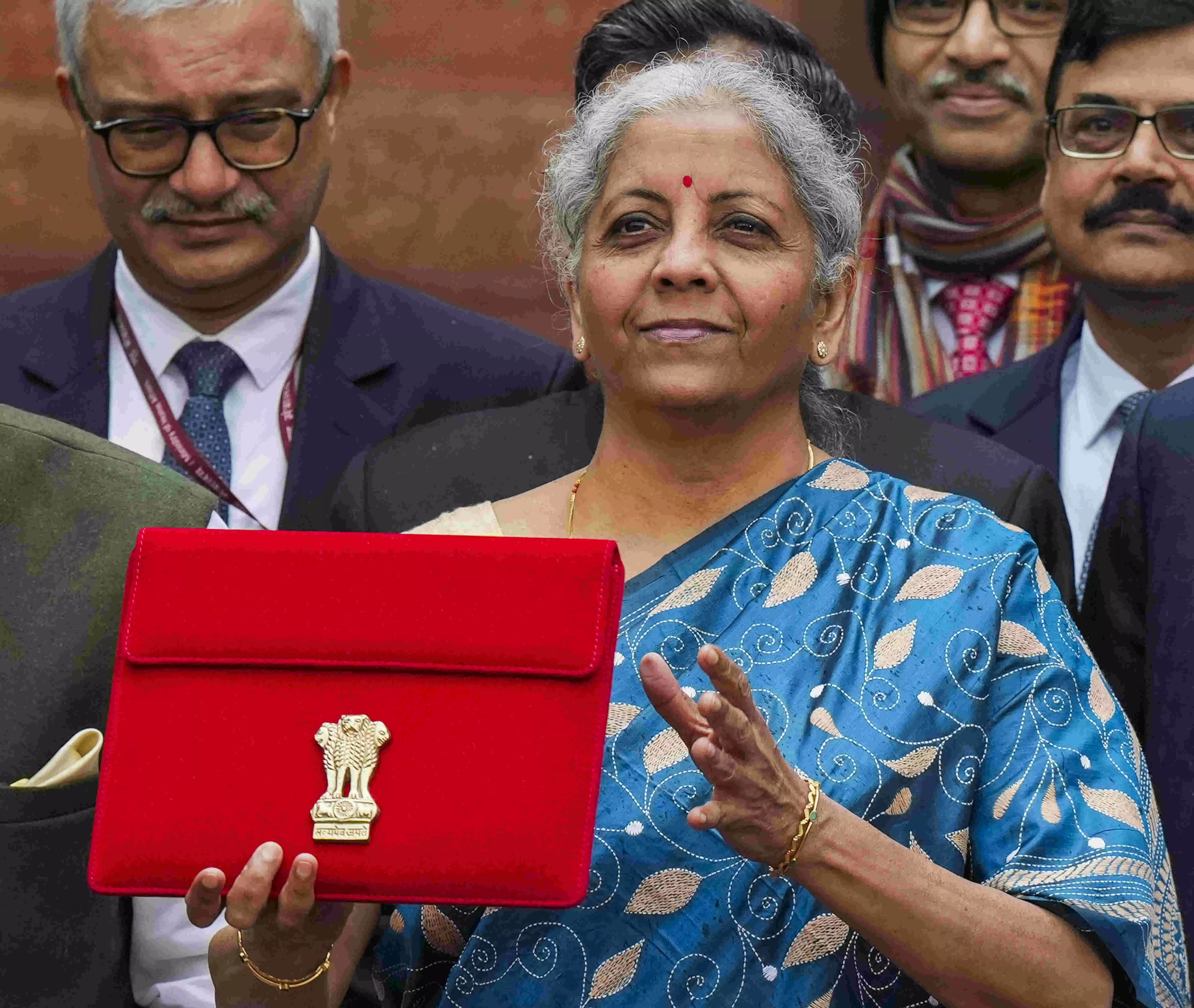Interim Budget 2024: Envisaging inclusivity
The Interim Budget 2024 unequivocally focusses on strengthening governance, development, and performance, with due emphasis on all-round inclusivity

Finance Minister Nirmala Sitharaman delivered her 6th straight Union Budget speech from the floor of newly built Parliament complex. Since this has been an interim budget, much of the policymaking proposals are not expected which we can expect only in the final budget; this interim budget 2024 is focused on empowering the poor and profoundly prioritising the inclusivity as a whole. Her speech repeatedly pointed on the collective empowerment of youth and farmers to strengthen the foundation of India’s economy and progressive growth in GDP. FM stressed on people-centric inclusive development of the country’s economy with maximum governance and minimum compliance. She mentioned that 25 crore people of India have come out of multi-dimensional poverty, which is a remarkable number. FM promises to present “VIKSHIT BHARAT” by 2027 with strategic policies to foster sustainable growth as the prime goal. Her speech put forward the message to reform-perform and transform the economy through enhancement of skill, capacity and regulatory framework. The next five years will encounter an unprecedented growth and development, FM quoted. The mission “Developed India @2047” will be achieved through Sabka Saath, Sabka Vikash and Sabka Vishwas motto. Madam FM in her speech threw the light on the power of digitalisation to achieve substantive development of all forms of infrastructure. India will spend 11.10 per cent more on infrastructure (Capex) costs in FY 2025. The introduction of Digital Public Infrastructure (DPI) has promoted formalisation and financial inclusion of masses. Schemes will be introduced to strengthen the Defense-Tech of the Nation. Enhancement in FDI inflow has shown a remarkable boom, starting during FYs 2014-2023, which has almost doubled, valuing USD 596. FM spoke on the role of the tourism sector to contribute revenue in the government kitty. G20 meetings in several places across the country showcased India’s prominence to the global audience. India’s significant role in G20 meetings was quite impressive to the global platform. Her speech quoted the role of direct taxes in fueling the national economy. Direct tax collections have increased three times in last ten years, resulting in hike in the number of return filers to 2.4 times. There has been drastically low lead time in processing of refunds (10 days in FY 23-24 as against 93 days in FY 13-14). Though there have been some more expectations of the general public regarding rationalisation of TDS /TCS and Advance Tax payments, particularly for the individual assesses and some additional relief through hiking the maximum threshold limit for senior citizens, no such matters have been considered in the interim budget-24. GST has always been the lead player in contributing revenues to the exchequer. It has doubled the tax revenue to 1.66 lakh crore in FY-24. FinMin quoted the acceptance of GST by the industry leaders as a business enabler which has led to the supply chain optimisation and shallowed the cost of production.
Though there have been no remarkable announcements as we normally expect in a full-fledged Union Budget, we can encapsulate the interim budget proposals as below:
• Boom in the Aviation and Airport sectors through expansion of existing airports and comprehensive development of new airports under the scheme UDAN.
• PM Awas Yojana outlay increased by 66 per cent to Rs. 79,000 crores.
• Housing for Middle Class scheme to be launched to promote middle class people to buy / build their own houses.
• Launch of new sub scheme PM Matsya Sampada Yojana with an investment of Rs 6,000 crore to improve aquaculture activities, shooting up the exports and generating more employment opportunities.
• Application of Nano-DAP to be expanded in all agro-climatic zones of India.
• Promoting the private-public investment in the post-harvest activities.
• Focus on renewables for clean and secure energy with 80 per cent rise in the power demand as was in the last decade.
• Government will now focus on four segments – Poor, Women, Youth and Farmers.
• Rooftop solarisation of 1 crore houses which will obtain upto 300 units of free electricity per month. This will cut down the annual household cost approximately 15K-18K.
• Ayushman Bharat Scheme for ASHA workers & Anganwadi Workers and helpers. This will provide them health coverage.
• Expansion of e-Vehicle Ecosystem by supporting manufacturing and charging.
• Adoption of e-Buses for public transport networks.
• Space research bags Rs 7,314 crore with a further boost in the full Budget in July’24
• Fertiliser subsidy allocation is lowered by 13 per cent to 1.64 crore for FY 24-25
• Implementation of 3 major railway corridor programmes under the project PM Gati-Shakti to escalate the logistic efficiency and lowering overall cost.
• Promoting foreign investment through bilateral investment treaties which will be negotiated.
• Promoting urban transformation through Metro rail NaMo Bharat.
• Generation of employment opportunities through implementation of Aspirational District Programmes to boost development.
• Encouraging vaccination of girls aged between 9-14 years to eradicate cervical cancer.
• States will be encouraged to undertake development of iconic tourist centers to attract business and promote opportunities to local entrepreneurs.
• The government will provide long-term interest-free loans to the states to promote tourism business. A corpus of Rs 1 lakh core will be created with 50-year loans to provide long-term finance with long tenure without or lower interest rates.
• 5 integrated Aqua Parks will be set up.
• 40,000 normal rail bogies will be converted to Vande Bharat Standards
• Withdrawal of outstanding direct tax demands up to Rs 25,000 till FY 09-10 and up to Rs 10,000 for FY 10-11 to FY14-15 (this will benefit approximately 1 crore tax payers).
• Same tax rates prevail for direct and indirect taxes as was in FY 2023-24.
• Tax benefits for startups, investments made by sovereign wealth, pension funds to be extended to March 2025.
Views expressed are personal



